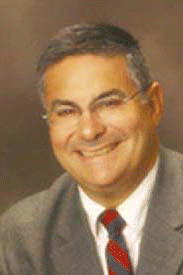Ms. Riley acknowledged that the Bureau of Medicaid Services needs to communicate with providers and let them know what to expect and how the new program will affect them. The Bureau is planning three pilot programs to educate providers and give them ample time to make changes to streamline efficiency, including switching to electronic health records.
Explore This Issue
September 2006Otolaryngologist’s Perspective
R. Arturo Roa, MD, who is President of the West Virginia Academy of Otolaryngology-Head and Neck Surgery, said that he has no philosophical or clinical quarrel with the idea of member responsibility agreements. Patients should be accountable for their appointments. No-shows are problematic, because they take up space in the day’s schedule that could be filled by another patient that would generate fees, he said. However, in his practice, he has not found that Medicaid recipients are more likely than other patients to fail to show up for appointments. He said most of his no-shows are hospitalized patients who fail to show up for follow-up appointments, but these are not necessarily Medicaid beneficiaries.
A lot of our Medicaid patients are very sick and will wait for hours to see us. We also see many children with ear infections, and mothers want to come to those appointments, he said.
Dr. Roa is concerned that the new redesign package not come with strings attached, particularly limits in what drugs will be reimbursed. My biggest complaint with Medicaid is that beneficiaries often do not get reimbursed for the drugs we prescribe; in particular, reflux medications. We see many Medicaid patients with laryngopharyngeal reflux disease who are not able to get their prescriptions filled and are given a different drug instead, Dr. Roa said.
Patients should be accountable for their appointments. No-shows are problematic, but I have not found that Medicaid recipients are more likely than other patients to fail to show up for appointments. – -R. Arturo Roa, MD
Kentucky’s Changes
Kentucky is taking a different approach. The plan is to provide four different benefit grids: one for the general Medicaid population, one for children, one for elderly people, and one for the developmentally disabled.
Instead of a ‘one size fits all’ Medicaid program, we plan to provide four different packages, more like the commercial world, said Thomas Badgett, MD, who is a pediatrician and Acting Commissioner and Chief Medical Director of the Kentucky Department for Medicaid Services.
The idea behind the redesign is to provide reasonable health benefits for the current eligible population, rather than unlimited benefits for a smaller population, he explained.

Leave a Reply